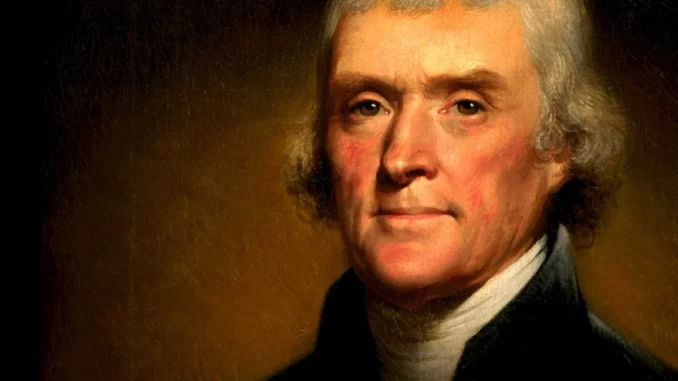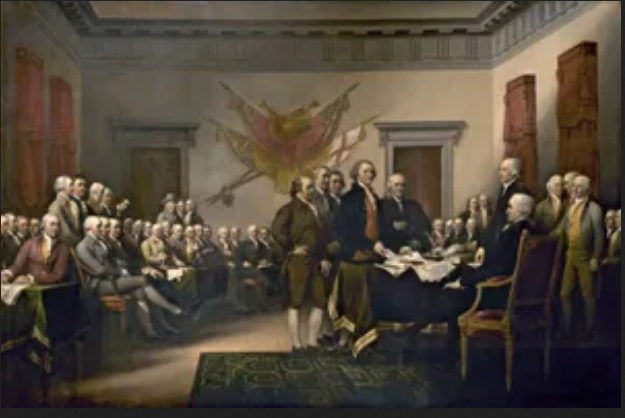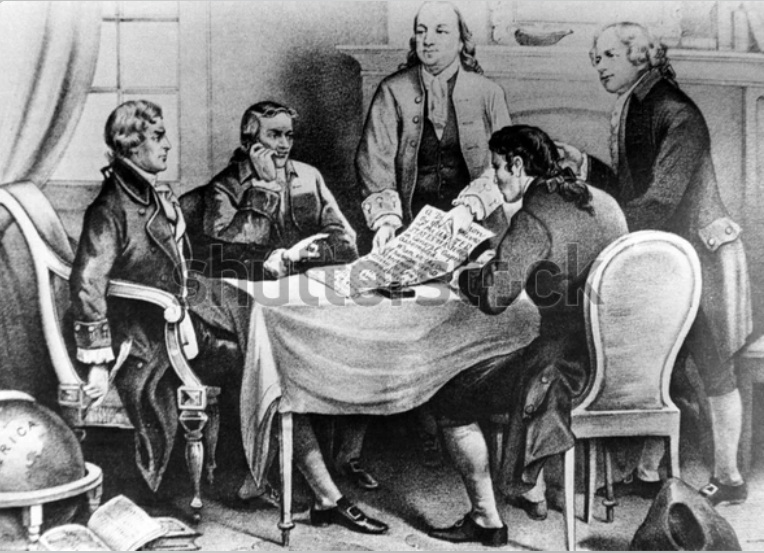
Table of Contents
Introduction:
Thomas Jefferson was a key figure in American history, born on April 13, 1743, in Shadwell, Virginia. He played a crucial role in the founding of the United States and is perhaps best known as the principal author of the Declaration of Independence in 1776. Jefferson was a multifaceted individual, serving as the third President of the United States from 1801 to 1809.
Beyond his political contributions, Jefferson was a polymath with a keen interest in various fields, including architecture, science, and agriculture. His vision for America encompassed ideals of individual liberty, democracy, and the pursuit of happiness, which continue to shape the nation’s identity. Despite controversies and contradictions in his own life, Thomas Jefferson’s legacy endures as one of the Founding Fathers who laid the groundwork for the democratic principles that define the United States.
Early Life:
Thomas Jefferson, the third President of the United States, was born on April 13, 1743, in Shadwell, Virginia, to Peter Jefferson and Jane Randolph Jefferson. Coming from a prosperous planter family, Jefferson inherited a sense of privilege and responsibility. His early years were spent on the family estate, where he was exposed to the workings of a large plantation.
As a young boy, Jefferson displayed a keen intellect and a curious mind. His father, Peter Jefferson, recognized his son’s potential and ensured that he received a quality education. Jefferson’s early education included classical studies, and by the age of nine, he was studying Latin, Greek, and French.

Education:
In 1760, at the age of 16, Jefferson left Shadwell to attend the College of William and Mary in Williamsburg, Virginia. His time at college was transformative, exposing him to Enlightenment ideas and the philosophical underpinnings that would shape his political beliefs. Jefferson was a dedicated student, immersing himself in a broad range of subjects, including law, mathematics, and natural philosophy.
Under the guidance of professors such as William Small and George Wythe, Jefferson’s intellectual curiosity flourished. He developed a lifelong love for books and learning. His studies were not confined to the classroom; he engaged in extensive reading on his own, further broadening his understanding of the world.
Political Career:
Early Political Involvement:
Jefferson’s political career took a significant turn with his involvement in the Continental Congress. In 1776, he was appointed to the committee responsible for drafting the Declaration of Independence. Jefferson’s eloquent words, encapsulating the principles of individual rights and self-government, secured his legacy as the primary author of the Declaration.
Following the Revolutionary War, Jefferson returned to Virginia and played a crucial role in the state’s political and social reforms. He served as the Governor of Virginia from 1779 to 1781. Despite facing challenges during his governorship, including British invasions, Jefferson continued to champion the ideals of democracy and liberty.

Ambassador to France:
Jefferson’s diplomatic skills were put to the test when he served as the U.S. Minister to France from 1785 to 1789. His experiences in Europe further shaped his political beliefs and influenced the drafting of the U.S. Constitution.
Formation of Political Parties and the Election of 1800:
The political divide between Jefferson and Hamilton crystallized into the formation of political parties—the Democratic-Republicans led by Jefferson and the Federalists led by Hamilton. The election of 1800, often referred to as the “Revolution of 1800,” witnessed a peaceful transition of power from Federalists to Democratic-Republicans.
Jefferson’s election as the third President of the United States marked a turning point in American politics. His inaugural address famously declared, “We are all Republicans, we are all Federalists,” emphasizing the need for unity and reconciliation.
Presidency:
Jefferson’s presidency was marked by a commitment to limited government and a strict interpretation of the Constitution. One of his most significant achievements was the Louisiana Purchase in 1803, which doubled the size of the United States. While the purchase expanded the nation’s territory, it also raised questions about the federal government’s power to acquire new land.
Jefferson’s presidency also saw the Lewis and Clark expedition, an ambitious exploration of the newly acquired western territory. The expedition, led by Meriwether Lewis and William Clark, provided valuable information about the geography, flora, and fauna of the western frontier.

Challenges and Controversies:
Challenges such as the Embargo Act of 1807, intended to protect American interests amid European conflicts, brought mixed results. Controversies surrounding Jefferson’s stance on slavery and his relationship with Aaron Burr added complexity to his legacy.
Post-Presidency:
Founding the University of Virginia:
Jefferson’s commitment to education materialized in the establishment of the University of Virginia in 1819. He designed the campus, emphasizing the importance of liberal arts education and the separation of church and state.
Later Life and Death:
Retiring to Monticello after his presidency, Jefferson continued his intellectual pursuits through extensive correspondence. His death on the Fourth of July, 1826, coinciding with John Adams’ death, added a poignant chapter to the nation’s history.
Legacy and Challenges:
Thomas Jefferson’s legacy is complex and multifaceted. On one hand, he is celebrated as the author of the Declaration of Independence, a champion of individual rights, and a visionary leader. On the other hand, his ownership of slaves and his views on race have been subjects of criticism and scrutiny.
Jefferson’s legacy is also intertwined with the broader challenges facing the young nation. The issue of slavery, which Jefferson acknowledged as a “moral depravity,” remained a divisive force that would eventually lead to the Civil War. The tensions between agrarian and industrial interests, as exemplified by Jefferson and Hamilton’s debates, continued to shape American politics in the decades to come.
In conclusion, Thomas Jefferson’s life, education, and political career form a compelling narrative that mirrors the complexities of the early American republic. From his formative years in Virginia to his role as a statesman and president, Jefferson’s journey reflects the intellectual and political ferment of his time. His enduring contributions to American democracy, coupled with the challenges and contradictions within his legacy, make Thomas Jefferson a central figure in the tapestry of American history.

Leave a Reply